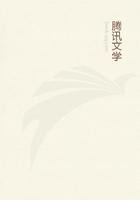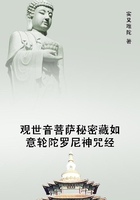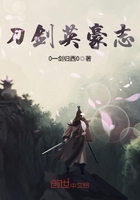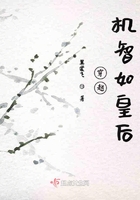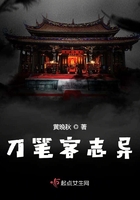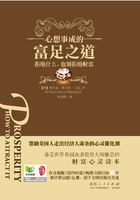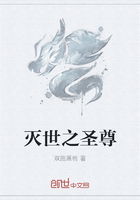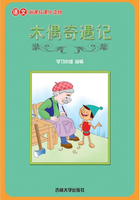In a village near Salzwedel a May-tree is set up at Whitsuntide and the boys race to it; he who reaches it first is king; a garland of flowers is put round his neck and in his hand he carries a May-bush, with which, as the procession moves along, he sweeps away the dew. At each house they sing a song, wishing the inmates good luck, referring to the black cow in the stall milking white milk, black hen on the nest laying white eggs, and begging a gift of eggs, bacon, and so on. At the village of Ellgoth in Silesia a ceremony called the King's Race is observed at Whitsuntide. A pole with a cloth tied to it is set up in a meadow, and the young men ride past it on horseback, each trying to snatch away the cloth as he gallops by. The one who succeeds in carrying it off and dipping it in the neighbouring Oder is proclaimed King. Here the pole is clearly a substitute for a May-tree. In some villages of Brunswick at Whitsuntide a May King is completely enveloped in a May-bush. In some parts of Thüringen also they have a May King at Whitsuntide, but he is dressed up rather differently. A frame of wood is made in which a man can stand; it is completely covered with birch boughs and is surmounted by a crown of birch and flowers, in which a bell is fastened. This frame is placed in the wood and the May King gets into it. The rest go out and look for him, and when they have found him they lead him back into the village to the magistrate, the clergyman, and others, who have to guess who is in the verdurous frame. If they guess wrong, the May King rings his bell by shaking his head, and a forfeit of beer or the like must be paid by the unsuccessful guesser. At Wahrstedt the boys at Whitsuntide choose by lot a king and a high-steward. The latter is completely concealed in a May-bush, wears a wooden crown wreathen with flowers, and carries a wooden sword. The king, on the other hand, is only distinguished by a nosegay in his cap, and a reed, with a red ribbon tied to it, in his hand. They beg for eggs from house to house, threatening that, where none are given, none will be laid by the hens throughout the year. In this custom the high-steward appears, for some reason, to have usurped the insignia of the king. At Hildesheim five or six young fellows go about on the afternoon of Whit-Monday cracking long whips in measured time and collecting eggs from the houses. The chief person of the band is the Leaf King, a lad swathed so completely in birchen twigs that nothing of him can be seen but his feet. A huge head-dress of birchen twigs adds to his apparent stature. In his hand he carries a long crook, with which he tries to catch stray dogs and children. In some parts of Bohemia on Whit-Monday the young fellows disguise themselves in tall caps of birch bark adorned with flowers. One of them is dressed as a king and dragged on a sledge to the village green, and if on the way they pass a pool the sledge is always overturned into it. Arrived at the green they gather round the king; the crier jumps on a stone or climbs up a tree and recites lampoons about each house and its inmates. Afterwards the disguises of bark are stripped off and they go about the village in holiday attire, carrying a May-tree and begging. Cakes, eggs, and corn are sometimes given them. At Grossvargula, near Langensalza, in the eighteenth century a Grass King used to be led about in procession at Whitsuntide. He was encased in a pyramid of poplar branches, the top of which was adorned with a royal crown of branches and flowers. He rode on horseback with the leafy pyramid over him, so that its lower end touched the ground, and an opening was left in it only for his face. Surrounded by a cavalcade of young fellows, he rode in procession to the town hall, the parsonage, and so on, where they all got a drink of beer. Then under the seven lindens of the neighbouring Sommerberg, the Grass King was stripped of his green casing; the crown was handed to the Mayor, and the branches were stuck in the flax fields in order to make the flax grow tall. In this last trait the fertilising influence ascribed to the representative of the tree-spirit comes out clearly.
In the neighbourhood of Pilsen (Bohemia) a conical hut of green branches, without any door, is erected at Whitsuntide in the midst of the village. To this hut rides a troop of village lads with a king at their head. He wears a sword at his side and a sugar-loaf hat of rushes on his head. In his train are a judge, a crier, and a personage called the Frog-flayer or Hangman. This last is a sort of ragged merryandrew, wearing a rusty old sword and bestriding a sorry hack. On reaching the hut the crier dismounts and goes round it looking for a door. Finding none, he says, Ah, this is perhaps an enchanted castle; the witches creep through the leaves and need no door. At last he draws his sword and hews his way into the hut, where there is a chair, on which he seats himself and proceeds to criticise in rhyme the girls, farmers, and farm-servants of the neighbourhood. When this is over, the Frog-flayer steps forward and, after exhibiting a cage with frogs in it, sets up a gallows on which he hangs the frogs in a row. In the neighbourhood of Plas the ceremony differs in some points. The king and his soldiers are completely clad in bark, adorned with flowers and ribbons; they all carry swords and ride horses, which are gay with green branches and flowers. While the village dames and girls are being criticised at the arbour, a frog is secretly pinched and poked by the crier till it quacks. Sentence of death is passed on the frog by the king; the hangman beheads it and flings the bleeding body among the spectators. Lastly, the king is driven from the hut and pursued by the soldiers. The pinching and beheading of the frog are doubtless, as Mannhardt observes, a rain-charm. We have seen that some Indians of the Orinoco beat frogs for the express purpose of producing rain, and that killing a frog is a European rain-charm.

